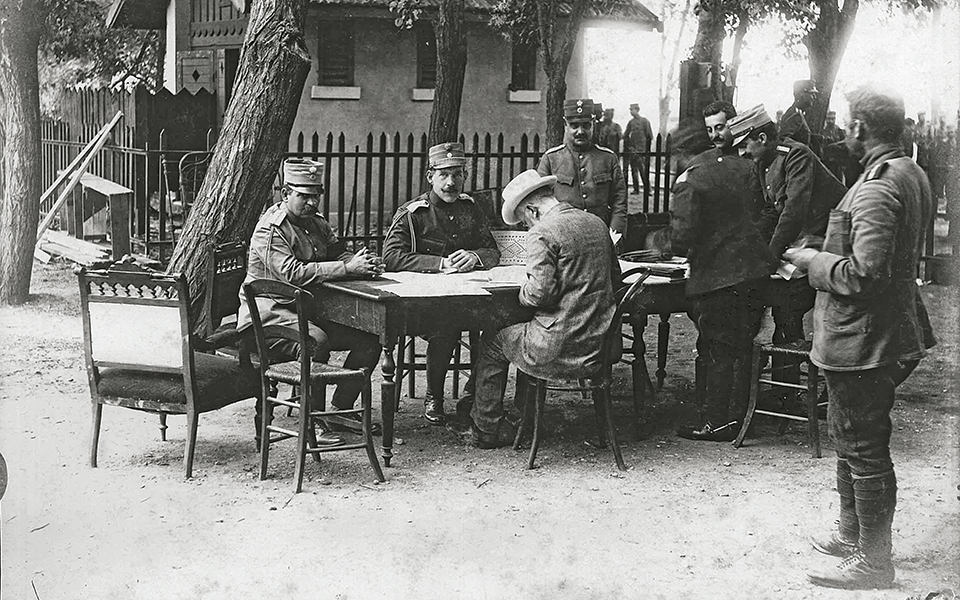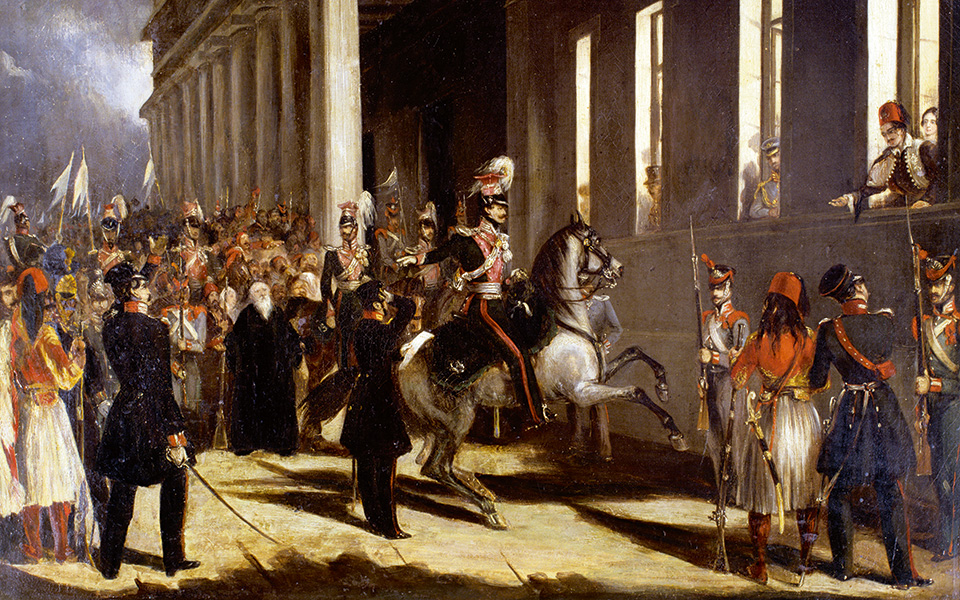References to Greece are commonly accompanied by statements reminding us of the fact that it is the birthplace of democracy. Yet, self-consciously or not, such statements effectively amplify the contrast between ancient and modern Greece, to the obvious disadvantage of the latter; for the unstated assumption among many is that the political history of modern Greece can hardly be described as democratic. Indeed, observers and pundits often mention several episodes in modern Greek history that highlight its thorny relationship with democracy. For example, Greece’s history of frequent military coups, culminating in the Colonels’ coup in April 1967, Europe’s last such instance; or its civil war in the 1940s which was followed by a political regime that severely restricted civil liberties and repressed opponents, as vividly depicted in Costa-Gavras’ famous 1969 film, “Z”.
These instances are real, but they overlook much longer stretches of democratic rule and parliamentary life that are essential for understanding Greece’s modern historical trajectory. And the striking fact about this trajectory is how early democracy emerged in modern Greece. Like most of its European contemporaries, the Greek state began life under a regime of absolute monarchy. It is, therefore, surprising to see how quickly and smoothly democratic institutions were adopted in Greece.
Undoubtedly, these institutions made their appearance under less than ideal conditions. When it gained independence in the late 1820s, Greece lacked a properly functioning state. In fact, the state was so weak that it was unable to establish a “legitimate” monopoly of violence on its territory. For instance, it took a long time for the state to eradicate rural banditry. Greece was also a peasant country, lacking a sizeable bourgeoisie and a tradition of aristocratic representative institutions (such as a parliament), both of which are considered to be essential prerequisites for the emergence of democratic institutions during the 19th century. Given the tiny size of Greece’s industry, there was also no sizeable industrial working class to mobilize in support of labor rights and civil liberties. Lastly, the country’s liberal intelligentsia was also minuscule. Given these shortcomings, it is quite surprising that democracy not only emerged in 19th century Greece, but also flourished.
The explanation to this puzzle is that Greece did enjoy one important advantage that has been linked by recent research to the rise of democracy: it had a relatively egalitarian social structure due to the absence of a large landowning class. The reason for this is that Greece’s landowning class had been primarily composed of Ottoman overlords who fled the country when it became independent.
Greece’s first workable constitution emerged as a result of a military coup that took place in September 1843. The coup had been planned and executed by military units in Athens which were unhappy about military spending cuts, in conjunction with political factions that had been marginalized by the absolutist rule of Greece’s first king, Otto.
The new constitution, approved in 1844, was modeled after the French constitution of 1830. It fell short of fully fledged parliamentary rule, but did introduce robust parliamentary institutions, including an assembly whose members were to be directly elected by the people triennially and a senate whose members were chosen by the king and had life tenure. An important law that was passed immediately afterwards introduced nearly universal male suffrage. Voting rights were granted to all males above the age of 25 who were citizens and could show that they either owned property or had a profession or trade in the area in which they were registered. In practice, this provision excluded only a very small proportion of the adult male population, mainly servants and apprentices. And so it was in 1847, one year before a wave of revolutions led to franchise extensions in many European states, that Greece became one of very few countries in the world with near-universal male suffrage. France followed suit in 1875, Belgium in 1893, Norway in 1898, Austria in 1907, Sweden in 1909 and the United Kingdom only in 1918 (Greek women, on the other hand, gained the right to vote much later, in 1952).
“ Greece lacked a properly functioning state. In fact, the state was so weak that it was unable to establish a “legitimate” monopoly of violence on its territory. For instance, it took a long time for the state to eradicate rural banditry. ”

“ The sudden and non-violent manner in which democracy was restored in Greece foreshadowed the third wave of democracy, which transformed the world from a largely autocratic collection of nations to a largely democratic one. ”
This surprising turn of events is best explained by the fact already mentioned, that Greece lacked a landed aristocracy. Hence, existing elites did not face the threat of expropriation entailed by the extension of the democratic franchise. This also explains why they did not oppose the introduction of democratic institutions, but doesn’t explain why they pushed for them. Furthermore, the absence of a dominant, cohesive elite, coupled with the presence of evenly balanced elite factions, all with privileged access to the rural population, made democratic institutions a good system for adjudicating their rivalries, while at the same time limiting the power of the king. The fact that the monarchy lacked deep roots also made this institutional transformation much smoother than it would have been otherwise.
After 1844, Greece enjoyed uninterrupted parliamentary rule until roughly the World War I, when a dispute between King Constantine and Prime Minister Eleftherios Venizelos led to a territorial division of the country, in what became known as the “National Schism.” Nevertheless, elections remained the only game in town until the collapse of the Greek army in an ill-fated military expedition deep inside Anatolia led to a military coup that ushered in a period of political instability peppered by short-lived autocracies, the most signficant of which was the one led by Ioannis Metaxas between 1936 and 1940.Indeed, the period between the two world wars was Greece’s most unstable, even though it remained – for the most part – a democratic period.
The 1940s was arguably the worst decade in Greek history, marred as it was by dramatic events such as the World War II, the devastating occupation of Greece by the Axis powers and an ensuing bloody civil war.Yet, the Greek Civil War, one that pitted the Communist Party against pretty much everyone else, did not coincide with the rise of an autocratic regime. Most certainly, the regime that emerged from the ashes of the occupation and, later, the Civil War, did repress its enemies and outlaw the Greek Communist Party, but it always left space for the political left to operate and compete in elections. Gradually, the regime liberalized itself, until the 1967 military coup put an end to that process.
In 1974, the military regime, facing the twin challenge of public opposition and economic stagnation, orchestrated a military coup in Cyprus to bolster its sagging fortunes. The undertaking backfired monumentally, triggering military intervention by Turkey and leading to the regime’s collapse and its replacement by a new non-military government led by seasoned politician Konstantinos Karamanlis. This is how, on 24 July 1974, democracy was restored in Greece.
ABOUT THE AUTHOR
STATHIS N. KALYVAS is Arnold Wolfers Professor of Political Science at Yale University and author of “Modern Greece: What Everyone Needs to Know” (Oxford University Press, 2015). He is Director of the Program on Order, Conflict and Violence and Co-director of the Program in Hellenic Studies, both at Yale. A fellow of the American Academy of Arts and Sciences, he specializes in the study of civil conflict and political violence.
The sudden and non-violent manner in which democracy was restored in Greece foreshadowed the third wave of democracy, which transformed the world from a largely autocratic collection of nations to a largely democratic one. In its non-violence, the Greek transition also prefigured the “velvet” revolutions that toppled communist regimes in the late 1980s. The Greek transition brought with it a modern constitution along with liberal and democratic institutions that anchored Greece within the group of the world’s freest and most democratic countries, where it remains to this day.
Without a doubt, democracy is never a finished project but a work in progress. Greece’s democracy has not been without flaws, foremost among which are its clientelistic dimension (whereby parties and the electorate exchange favors for votes) and its populist tendencies (leading to the outsize deficits that caused the country’s 2009 crisis).
In sum, when speaking of Greece, one should keep in mind that democracy is not only a concept that harks back to classical Greece, but also an institution with a long tradition in modern Greece.











